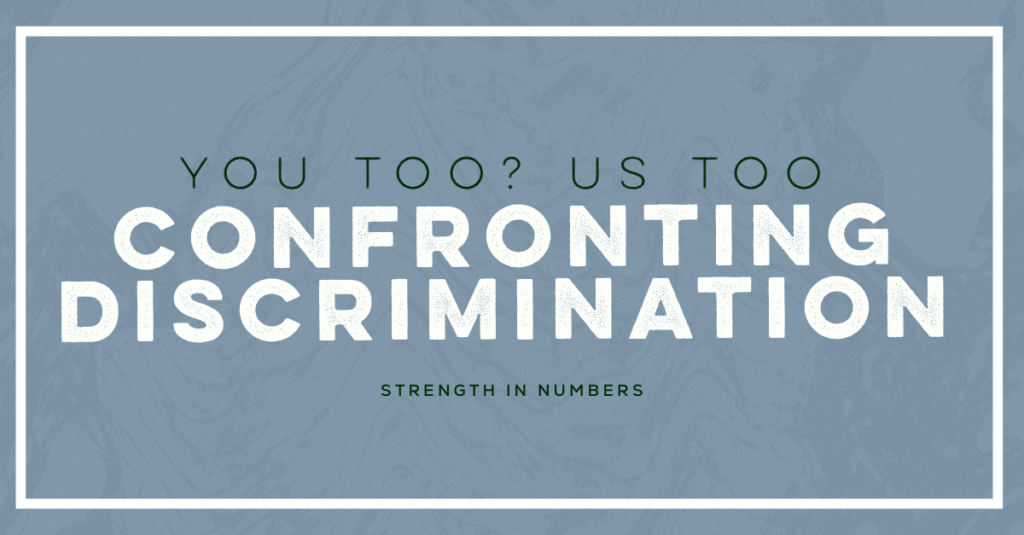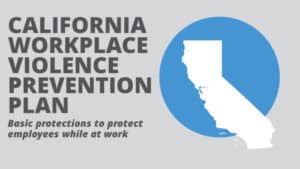Written By Christopher B. Dolan and Vanessa C. Deniston
This week’s question comes from Fatima in the Bay Area:
I am a woman of color working at a big tech company in the Bay Area. I have been stuck in the same position for nearly seven years, while several of my white, male co-workers and even subordinates have been given opportunities for advancement. I’m worried my supervisor doesn’t consider me a serious candidate for a promotion, despite my excellent performance reviews. When there is a menial task to get done, it always seems to be assigned to me. At company events, my supervisor introduces me by first name only to corporate representatives, though he introduces the male members of my team using their full names. In meetings, I am frequently interrupted by male team members when I am trying to share feedback or ideas. I am hesitant to approach HR about this. I feel I will be told I have no proof and I am just imagining things. I’ve heard rumors that women in other departments have had similar experiences, but I’m not sure who they are and I’m too worried about my job security to go asking questions. Do I have any options here?
Thank you for your question, Fatima. Let me assure you that you are not alone in your experiences. What you have described, a mixture gender and potentially race-based discrimination and microaggressions, is being experienced on a grand scale throughout the tech industry by women. Men continue to outnumber women at every level and women are promoted at a lower rate than men, making up only about 38% of managers. While many companies couch themselves as “progressive” and profess to have inclusive diversity platforms, the disparities in the workplace between men and women and, disproportionately, women of color, persist.
Most recently, a group of both current and former Apple employees dissatisfied with the internal responses to their complaints of harassment, discrimination and retaliation have banded together and called for a collective exchange of stories and experiences in the workplace, spurring the #AppleToo hashtag on social media. The group’s website urges its coworkers at every level to collectively call for systemic change in the workplace, stating that,
“when our stories are collected and presented together, they help expose persistent patterns of racism, sexism, inequity, discrimination, intimidation, suppression, coercion, abuse, unfair punishment, and unchecked privilege.”
In circumstances such as yours, Fatima, there are several actions you can take to both protect yourself and connect with other women and/or persons of color with similar experiences. First, it is essential to document any incidences or circumstances you feel could be related to gender or race discrimination, including discussions with your boss regarding your interest in advancement opportunities and his response, instances of microaggressions and/or evidence of disparate treatment in the workplace. If possible, your written record should be created contemporaneously with the incidences they document and be marked with a date and time stamp. Contemporaneous records, especially those bearing a date and time stamp, are afforded more credibility than ones created after the employee suffers a termination or a disciplinary meeting. Your description should include the date, time, setting, potential witnesses involved and what was said. Be a meticulous historian and leave emotion out of it, if possible. Always assume an outsider, with no knowledge of you, your character, or your performance record, may someday be reading and evaluating your account of what occurred. While you can certainly share how the experience made you feel, resist the urge to vent.
The second step you can take is keeping your eye out for allies and sharing your experiences with them in a safe environment outside the workplace. It may feel intimidating to ask other women or persons of color if they, too, feel discriminated against or marginalized in the workplace. Therefore, it is often easier to share your own experiences with them first. If they have faced something similar, they are more likely to feel comfortable volunteering it on their own terms than they would if you questioned them about it directly. If they do end up sharing similar experiences, approaching human resources together can be a powerful approach. It is easier to dismiss one employee’s experience as an outlier, than it is to dismiss two or three similar ones, especially where the reporting structure is shared.
Nonetheless, if you find you are your only reliable witness, go to HR and report your concerns, preferably in writing. Do not operate under the assumption your concerns will be dismissed. Even if they are, it is unlawful for your company to retaliate against you for voicing your complaints about suspected gender and/or race discrimination. Your company has a vested interest in responding to discrimination claims appropriately, as a failure to investigate, only increases their liability. As always, documenting all communications you have with your supervisor and HR is an important tool to keep track of what has occurred and protect yourself should retaliation occur after filing an informal or formal complaint.
If you feel you are being harassed, discriminated against, or retaliated against because of your race or gender, contact an attorney that specializes in employment law. Making real, transformative change in the struggle against institutionalized implicit bias and overt bias, takes courage and numbers. The good news is the tech industry does not lack either.










